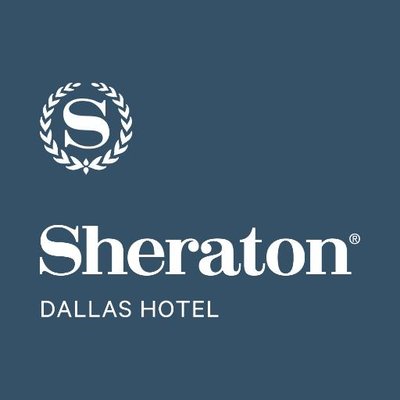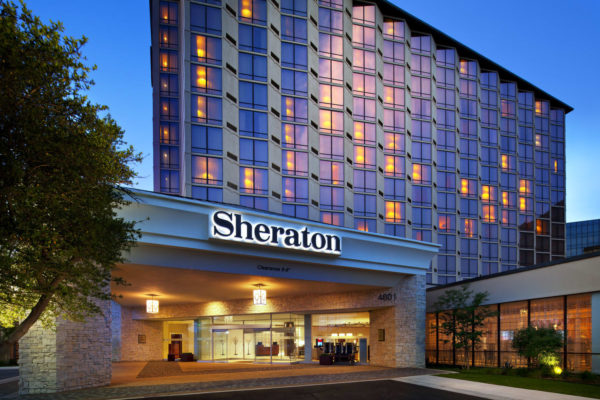THE HOST
Set in the Arts District, this upscale hotel is a 3-minute walk from the Pearl Street/Arts District light rail station, and a 7-minute walk from shopping at the landmark Neiman Marcus Building.
Streamlined rooms have flat-screen TVs and Wi-Fi (fee), plus work desks with ergonomic chairs. They also have mini fridges and coffee makers. Club rooms provide access to a lounge with complimentary continental breakfast, all-day snacks and evening appetizers. Room service is available.
Amenities include a casual restaurant, a cafe and a sports lounge, as well as a fitness center and an outdoor pool. There’s also meeting space and a 24/7 business center.
Dallas, TX
Dallas, city, Dallas, Collin, Denton, Rockwell, and Kaufman counties, seat (1846) of Dallas county, north-central Texas, U.S. It lies along the Trinity River near the junction of that river’s three forks, in a region of prairies, tree-lined creeks and rivers, and gentle hills. Its winters are mild with brief cold spells, but summers are hot with moderate to high humidity. Dallas is the state’s third most populous city (after Houston and San Antonio) and the metropolis of the sprawling Dallas–Fort Worth urban area, known locally as the Metroplex. Fort Worth lies 30 miles (48 km) west; other major cities in the metropolitan region include Arlington, Carrollton, Denton, Garland, Grand Prairie, Irving, Lewisville, Mesquite, Plano, Richardson, and University Park. Dallas has a council-manager form of government that was established there in 1931. Inc. town, 1856; city, 1871. Area city, 385 square miles (997 square km). Pop. (2010) 1,197,816; Dallas-Plano-Irving Metro Division, 4,235,751; Dallas–Fort Worth–Arlington Metro Area, 6,371,773; (2020) 1,304,379; Dallas-Plano-Irving Metro Division, 5,129,966; Dallas–Fort Worth–Arlington Metro Area, 7,637,387.
In 1841 John Neely Bryan, a lawyer and trader from Tennessee, built the first cabin (now restored) in the area on the riverbank. Other settlers moved into the region, and a town site was laid out in 1844. The origin of the community’s name is uncertain; most likely it is named for early settler Joseph Dallas or for George Mifflin Dallas, vice president (1845–49) of the United States. Its early settlement was augmented by Swiss and German immigrants and in the late 1850s by French artisans from the unsuccessful Fourierist utopian colony at nearby La Réunion. Large numbers of African Americans moved into the area after the American Civil War.
Commercial growth was stimulated by the arrival of the railroads in the 1870s. A huge wholesale market developed, with many of the city’s retail stores serving the American Southwest; one, Neiman-Marcus, has become internationally known. The adjacent communities of East Dallas and Oak Cliff were annexed in 1889 and 1903, respectively, greatly expanding the city’s size.
TRAINING OVERVIEW
Host Company offers progressive CULINARY Arts training programs through a specific training department focus/concentration (Commissary, Garde Manger, Banquets, casual Quick Serve, Cascades Garden Upscale) & common phases may include: (See Training Plan for Specifics)
- Arrival, Orientation & Intro to American Culinary Arts
- Culinary Arts for Casual Dining, Quick Serve or Upscale
- American Techniques/Methodologies for High Volume
- Banquets, Garde Manger, Pastry, Customer Service
Depending on the specific training dept. assigned, Exchange Visitors may learn or gain experience with preparations used to make resort operations run successfully, methodologies, recipes, quality & presentation standards, oven, grill & other equipment operations, while learning productivity and time management skills. They may learn ways to be flexible with guests and gain experience with Grill, Saute’, Sushi and various stations. They may learn banquet operations and commissary storage, how to create a unique culinary experience, and how to plate & execute upscale a la carte dining.
Housing and Transportation
Your Host Organization will arrange temporary housing on-site for the first 14 days.
- Temporary Housing is not required for the job placement, but is provided by your Host Organization on-site for the first two weeks of your program for $60 per night + taxes & fees.
- Participants may be required to sign a housing agreement. By signing the program information guide and/or housing agreement, participants are agreeing to stay at housing that has been pre-arranged for the entire length of the agreement.
- Any damage to the property will result in participants paying the cost as determined by the housing management.
- Detailed housing arrangement will be disclosed by GEC prior to arrivals.
- Temporary Housing for the first 2 weeks is $60 per night + taxes and fees ($501.55 per week for 1-person occupancy and $250.78 per week for 2-person occupancy). After that point, you will be responsible for securing your own permanent housing.
- Your Host Organization will assign rooming lists based on arrival/departure dates and specific roommates may not be guaranteed.
- Your Host Organization will assign rooming lists based on arrival/departure dates and specific roommates may not be guaranteed.
- By accepting placement and signing training plan, exchange visitors assume responsibility to read the House Rules and agree to abide by all terms and conditions of this Agreement and the House Rules.
- Various Transportation options available and might include Public Transportation, Taxi/Shuttle Service, & Ride Share (Uber/Lyft).
The above information is accurate at this time but final placement arrangements are subject to change. When you have been selected, please carefully review your final placement details in your Program Information Guide. It is your responsibility to read and understand your placement details BEFORE signing your work agreement and Program Information Guide acknowledgment form that indicates the acceptance of your placement details.

